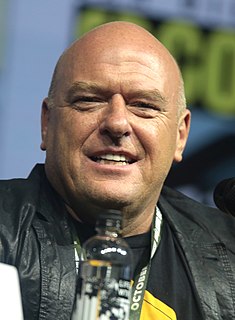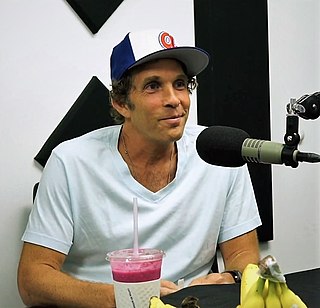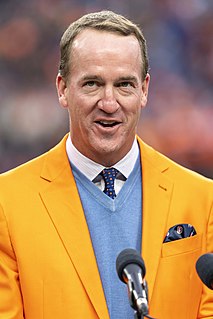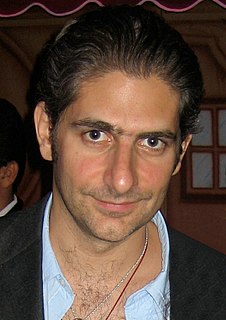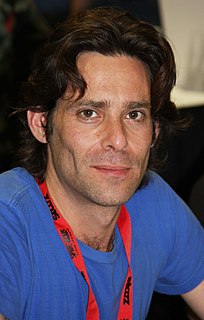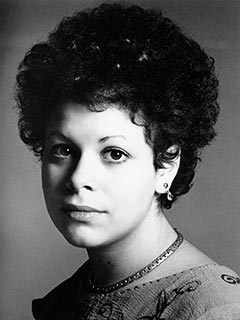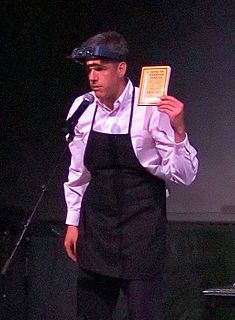A Quote by Dean Norris
I talked to people that I'd done theater with, older actors and stuff. There's a lot of people who go into the business, and they must think they're good, or they wouldn't be in it. Why do you think that you're good enough to go into the business and make money at it? So I really wanted to ask myself that question a lot. Because it was an important kind of thing that I was going to do. I really wanted to do it, I loved it, and I thought that I was good enough that I could make money at it. And that's really what it came down to.
Related Quotes
I wasn't sure what I wanted to do with my life. I always wanted to pursue either music or comics, so when the opportunity came from comics publisher Fantagraphics for my brothers Jaime and Mario and I to make a comic book together, we jumped at the chance: "Let's just do it and see what happens." Really, we weren't sure where we were going to go with it. We thought our work was good enough to be out there, but we didn't know that the response was going to be pretty good, pretty quick.
When I graduated college, I remember all I really wanted was to make enough money to have a swimming pool, because I love to swim, to grow my own fruit. I wanted to have a little plot where I could grow my own oranges and make enough money where I could to take two weeks off a year. I figured if I had that, it was game over.
Trickle-down economics - it didn't work. The whole idea was supply-side economics: give rich people a lot of money; they'll spend it, it'll go into the economy. Here's what we found out - rich people, really good at keeping all the money. That's how they got rich. If you want it in the economy, give it to the poor people. You know what they're really good at? Spending all their money.
There's a lot of money in selling marijuana. If you can do it legally, that's good. Why should all the criminals make the money? This is what people are thinking. If it's happening, if it's going to be legal, let's tax it and regulate it, like we do with everything else and make some money off this. I think that's one reason why people are talking this a little more seriously.
I was never on a mission to be an NFL quarterback. I wanted to be a good high school player, and I worked hard at that. That made me good enough to play in college and then I wanted to be a good college quarterback. During college I played well enough to make it into the NFL. I never took it for granted and really wanted to play hard at each level and I have always had a lot of fun doing what I wanted to do.
Even after I had just done Twilight, which made $400 million at the worldwide box office, I could not get financing for three or four projects that I really loved and I thought people would love because they didn't fit some studio or investor's model of thinking, "This will definitely make money." It's a business and a film does potentially cost millions of dollars, and they have to think that they're going to get their money back somehow.
I was desperate to do more TV and film. Because I considered myself to be a theater creature. A theater animal. I was convinced that I was going to be onstage for the rest of my life. Because it's something I can really do. I thought I was pretty good at it, and it's kind of stupid, but I was concerned that people would go, "Oh yeah, he's very good onstage, I'm not sure he can do television."
Music is what is going to save me," "On the bad days, when I have to look at the cold, hard facts of life, I see that this is not the music business I came up in and I have to be very, very objective and detached and say, 'what's good about it and what's bad about it?' Mostly, I'm finding it good that it's not the same old music business, because the music business I came up in really didn't advance anything I was doing, and I don't think it was particularly kind to a lot of artists.
I think in some ways people kind of hate it, but most models recognize that it's a pretty easy job to make a lot of money at in a relatively short time, and you get to travel the world and meet a lot of interesting people. There are extreme highs and extreme lows. I think if it were as clear-cut as "models hate it," then they wouldn't do it. I really enjoyed a lot of the actual aspects of it, but not enough to make it my primary job. It can be quite empty, which is why I pursued other things.
